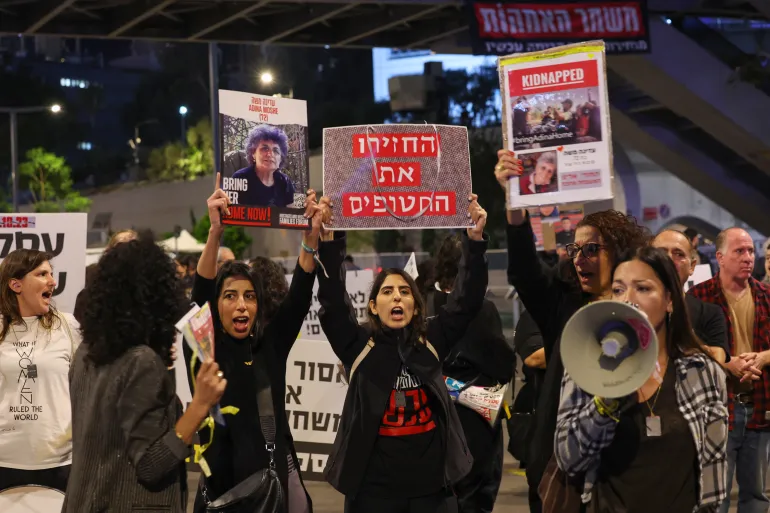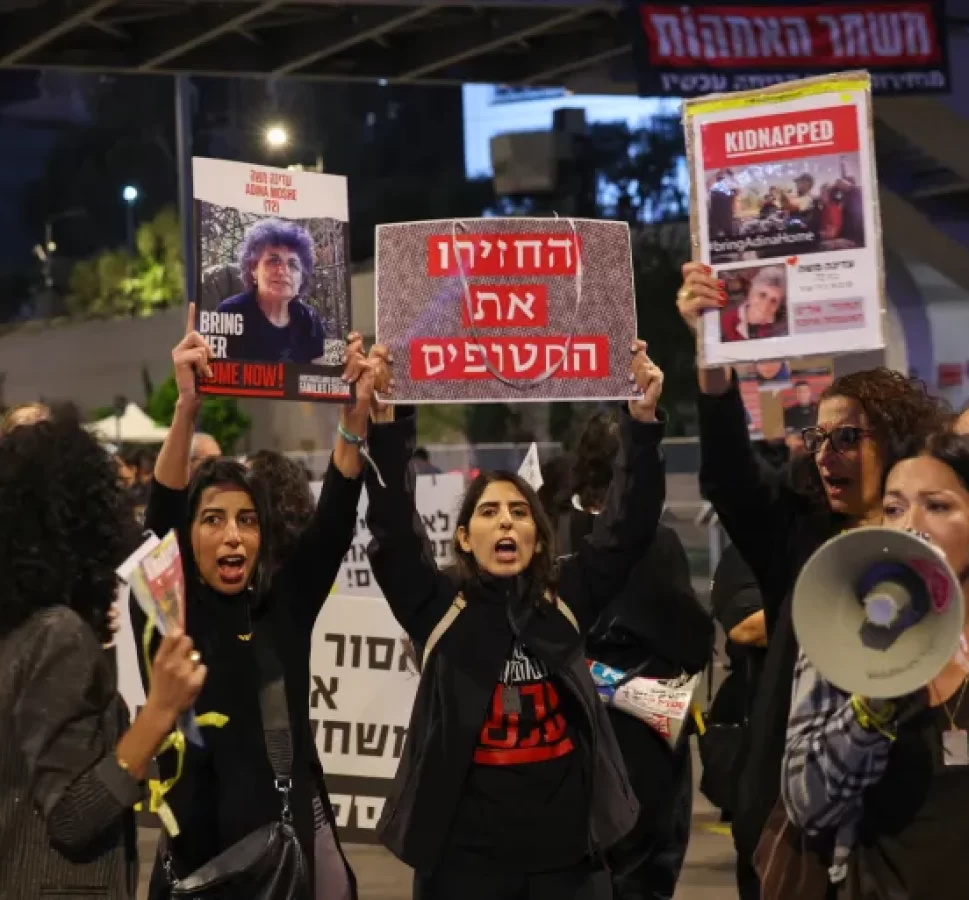
Hamas is stressing its four conditions even as 18 countries try to ramp up pressure on the group for a deal.
Palestinian group Hamas has said it remains committed to achieving an agreement with Israel to end the war on Gaza, but only if its conditions including a lasting ceasefire are met.
Khalil al-Hayya, a member of the group’s political bureau, said that Hamas “is serious about releasing Israeli captives within the framework of an agreement” that also ensures the release of thousands of Palestinian prisoners in Israeli jails.
He told Al Jazeera Arabic in a televised interview on Thursday that Hamas will not accept a truce without a permanent ceasefire and a complete halt of Israel’s assault on the Gaza Strip, which has killed more than 34,000 people – mainly women and children – since the current conflict started in October.
An “unhindered return” of Palestinians across the besieged enclave to their homes, along with the reconstruction of Gaza and “an end to the crippling siege” imposed on it were among the four conditions that al-Hayya reiterated.
Hamas had submitted its response to a United States amendment on April 13 and is still waiting for a reply from Israel and the mediating parties, he said.
Talks on a ceasefire between Israel and Hamas have been in limbo with the two sides showing few signs that they are ready to compromise on their demands, but international mediators – Qatar, the United States and Egypt – have been engaged in intense behind-the-scenes talks to secure a deal.
Top Israeli officials have repeatedly called Hamas’s demands “delusional” and have said an Israeli withdrawal from the Gaza Strip would amount to losing the war.
Egypt has asked for a follow-up meeting with Israel in renewed efforts to mediate a deal, two Egyptian security sources told the Reuters news agency.
Egyptian, Israeli and US officials reportedly held in-person and remote meetings on Wednesday that sought concessions to break the deadlock in the months-long negotiations, and a meeting between Egyptian and Israeli officials is expected to take place on Friday in Cairo.
The US and 17 other countries issued an appeal for Hamas to release captives as a pathway to end the crisis in Gaza.
“We call for the immediate release of all hostages held by Hamas in Gaza now for over 200 days,” read the statement on Thursday by the leaders of Argentina, Austria, Brazil, Bulgaria, Canada, Colombia, Denmark, France, Germany, Hungary, Poland, Portugal, Romania, Serbia, Spain, Thailand and the United Kingdom.
It said that the “deal on the table to release the hostages would bring an immediate and prolonged ceasefire in Gaza, that would facilitate a surge of additional necessary humanitarian assistance to be delivered throughout Gaza, and lead to the credible end of hostilities”.
Reporting from Washington, DC, Al Jazeera’s Mike Hanna pointed out that the statement appears to be trying to step up pressure on Hamas amid ongoing attempts at negotiation.
“There’s no mention whatsoever of any concomitant release of Palestinian prisoners being held in Israel by the Israeli government, but this is stepping up pressure on Hamas, it would appear, as these negotiations grind forward,” he said.
The renewed effort to continue the talks is shaping up as Israel has significantly increased its military activities across the enclave and is proceeding with plans for a ground invasion of Rafah in the south, where some 1.5 million displaced Palestinians are taking shelter.
The humanitarian situation in Rafah – bordering Egypt – and across Gaza remains dire, with the United Nations and others repeatedly stressing the need for Israel to allow more aid in.
Eleven-year-old Husam is one of more than 600,000 children who have sought refuge in Rafah which was designated a “safe zone” even as the Israeli military continues to pound it from the air in preparation for a ground assault.
“We’re afraid people will resort to killing each other for food,” he told Al Jazeera.
“A person’s psyche wears out with fear. It’s a slow death.”






